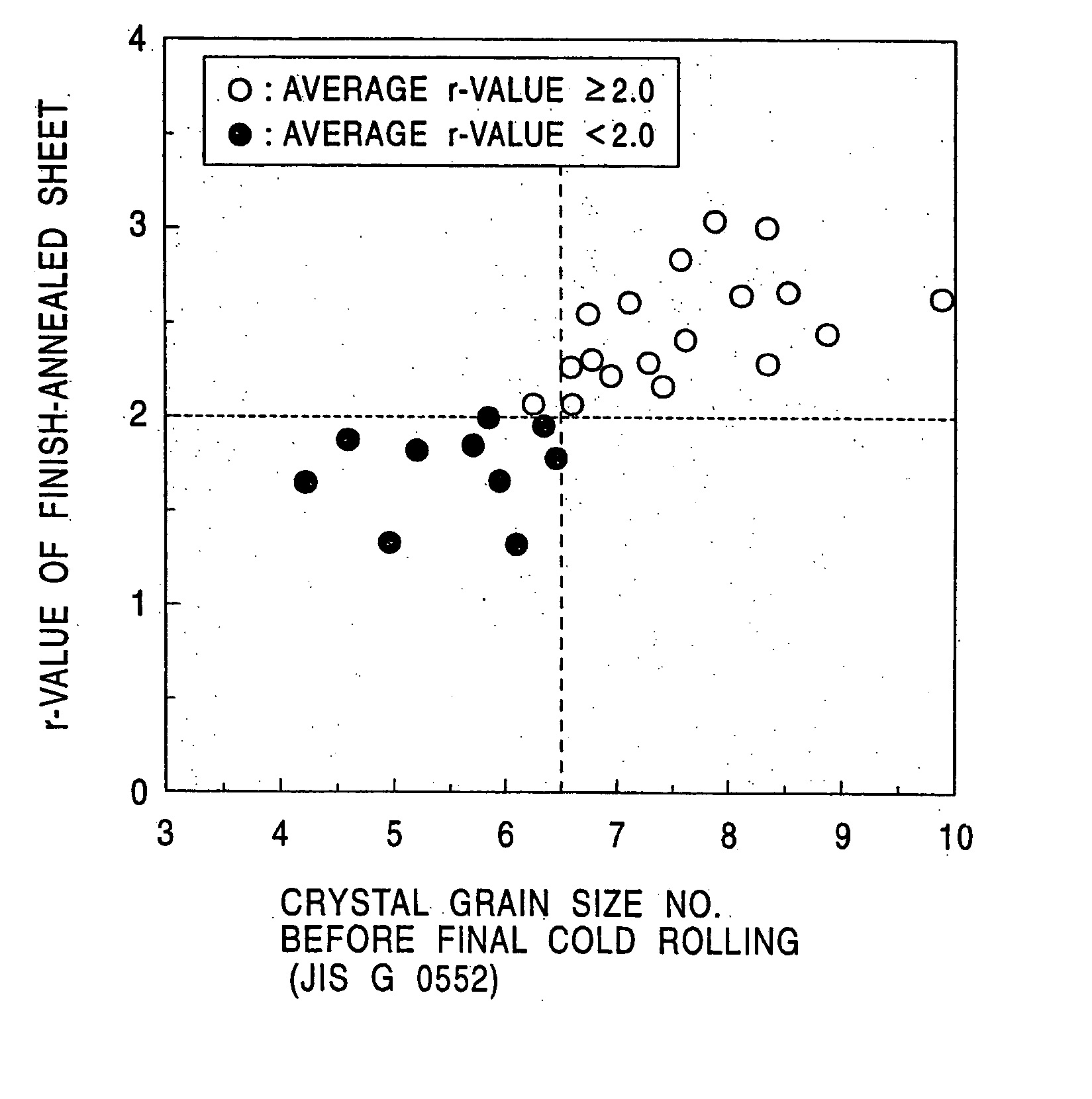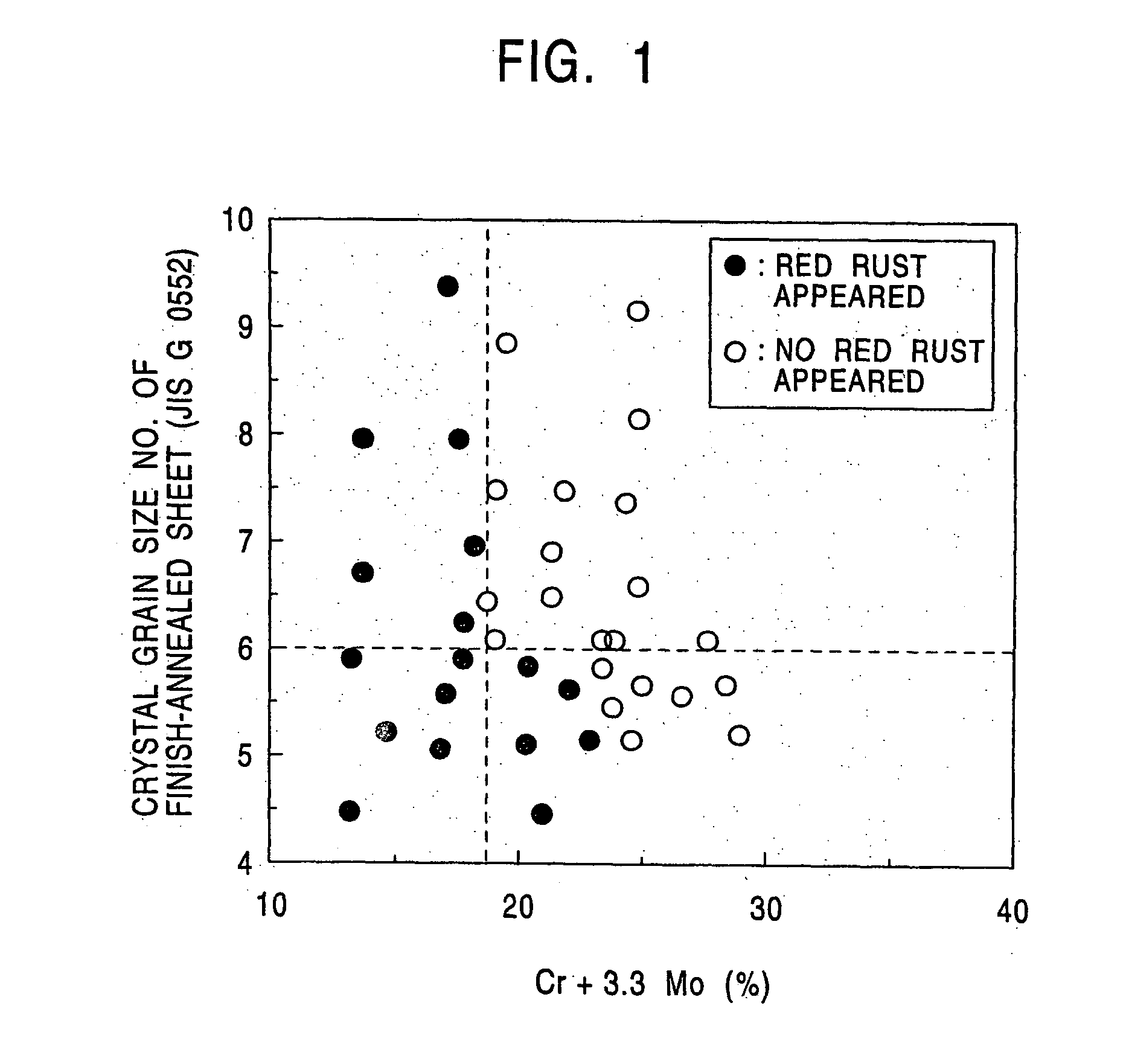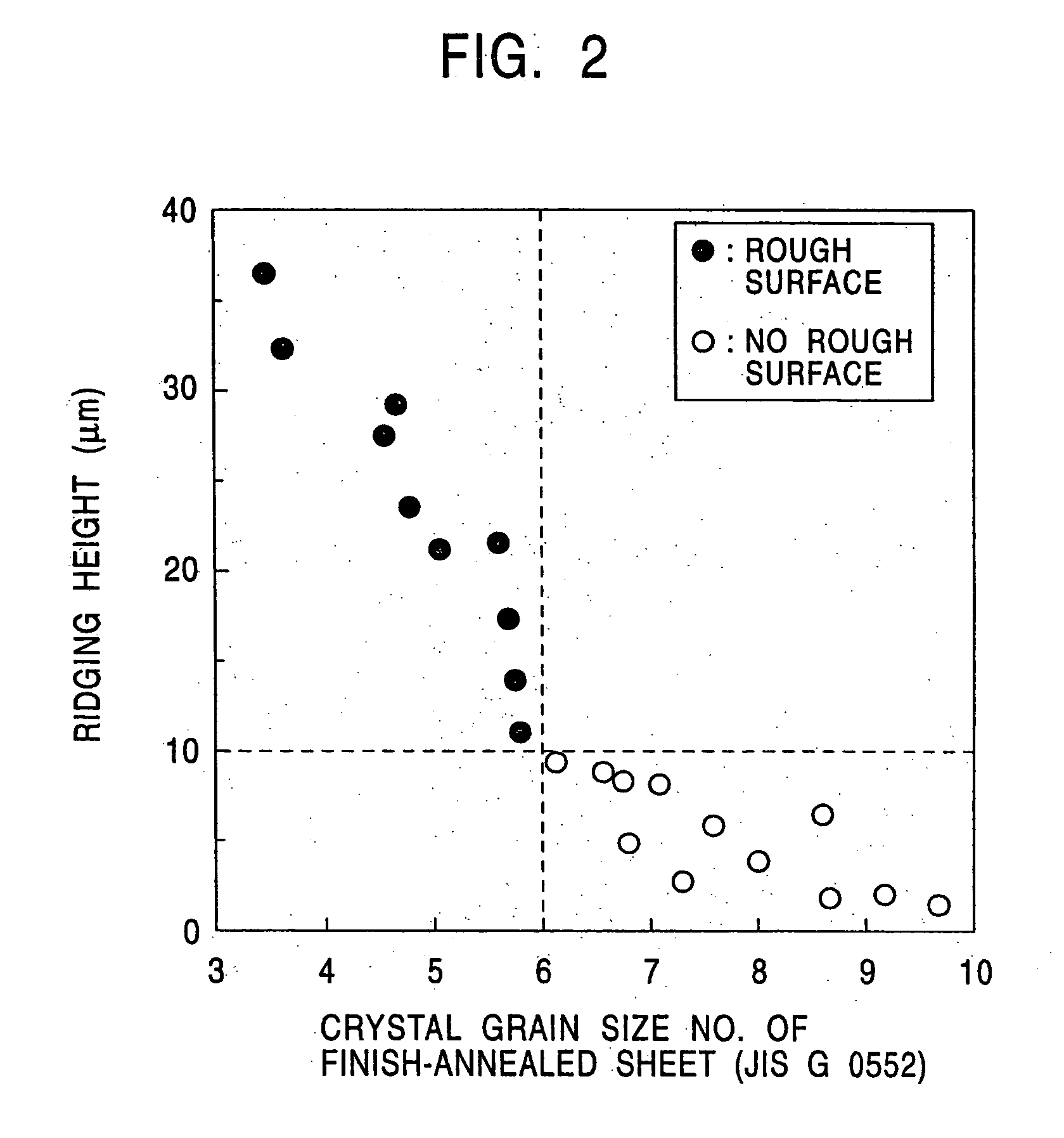Ferritic stainless steel sheet with excellent workability and method for making the same
a technology workability, applied in the field of ferritic stainless steel with excellent workability and making methods, can solve the problems of low elongation of known ferritic stainless steel approximately 30%, inferior to austenitic stainless steel, and insufficient workability of known ferritic stainless steels. , to achieve the effect of improving workability and reducing production costs
- Summary
- Abstract
- Description
- Claims
- Application Information
AI Technical Summary
Benefits of technology
Problems solved by technology
Method used
Image
Examples
example 1
[0128] Steel slabs having the compositions shown in Table 1 were hot rolled under conditions shown in Table 2 and subjected to cold rolling, intermediate rolling, and finish rolling under the conditions shown in Table 3. The X-ray integral intensity ratios (222) / (200) of the resulting finished annealed sheets were measured at a plane parallel to the sheet surface at a position corresponding to 1 / 4 of the sheet thickness. The ferrite crystal grain size number of each sheet was measured according to JIS G 0552 (sectioning method) at positions corresponding to 1 / 2, 1 / 4, and 1 / 6 of the sheet thickness in a cross section taken in the rolling direction (L direction). The measured grain size numbers and the X-ray integral intensity ratios are shown in Table 4.
[0129] Next, a JIS No. 13B test piece was taken from each sheet, and a 15% uniaxial tension prestrain was applied to the test piece. The r-values r.sub.0, r.sub.45, and r.sub.90 according to a three-point method sere measured and the ...
example 2
[0143] Cold-rolled steel sheets 0.75 mm in thickness prepared by processing steel No. 1 in Table 1 according to the conditions of No. 2 in Tables 2 and 3 in EXAMPLE 1 were washed with an alkaline solution, and various amounts of lubricant coat containing an acrylic resin as the primary component, 5 percent by volume of calcium stearate, and 5 percent by volume of polyethylene wax were applied to these steel sheets. Each sheet was baked at 80.degree. C..+-.5.degree. C. for 15 seconds. The weldability and sliding performance of the prepared test pieces were examined. The results are shown in Table 5.
[0144] In the sliding performance testing, a test piece 300 mm in length and 10 mm in width was placed between flat dies with a contact area with the test piece of 200 mm.sup.2 under an area pressure of 8 kgf / mm.sup.2 and a dynamic friction coefficient (.mu.) was determined by a pulling-out force (F). The spot weldability was evaluated based on a nugget diameter of a welded portion generat...
PUM
| Property | Measurement | Unit |
|---|---|---|
| temperature | aaaaa | aaaaa |
| temperature | aaaaa | aaaaa |
| temperature | aaaaa | aaaaa |
Abstract
Description
Claims
Application Information
 Login to View More
Login to View More - R&D
- Intellectual Property
- Life Sciences
- Materials
- Tech Scout
- Unparalleled Data Quality
- Higher Quality Content
- 60% Fewer Hallucinations
Browse by: Latest US Patents, China's latest patents, Technical Efficacy Thesaurus, Application Domain, Technology Topic, Popular Technical Reports.
© 2025 PatSnap. All rights reserved.Legal|Privacy policy|Modern Slavery Act Transparency Statement|Sitemap|About US| Contact US: help@patsnap.com



